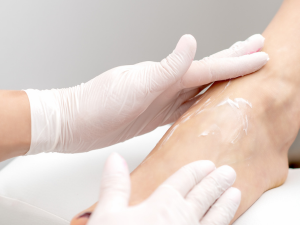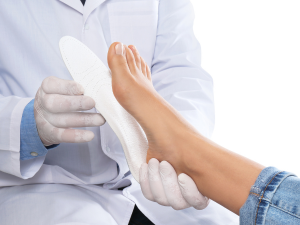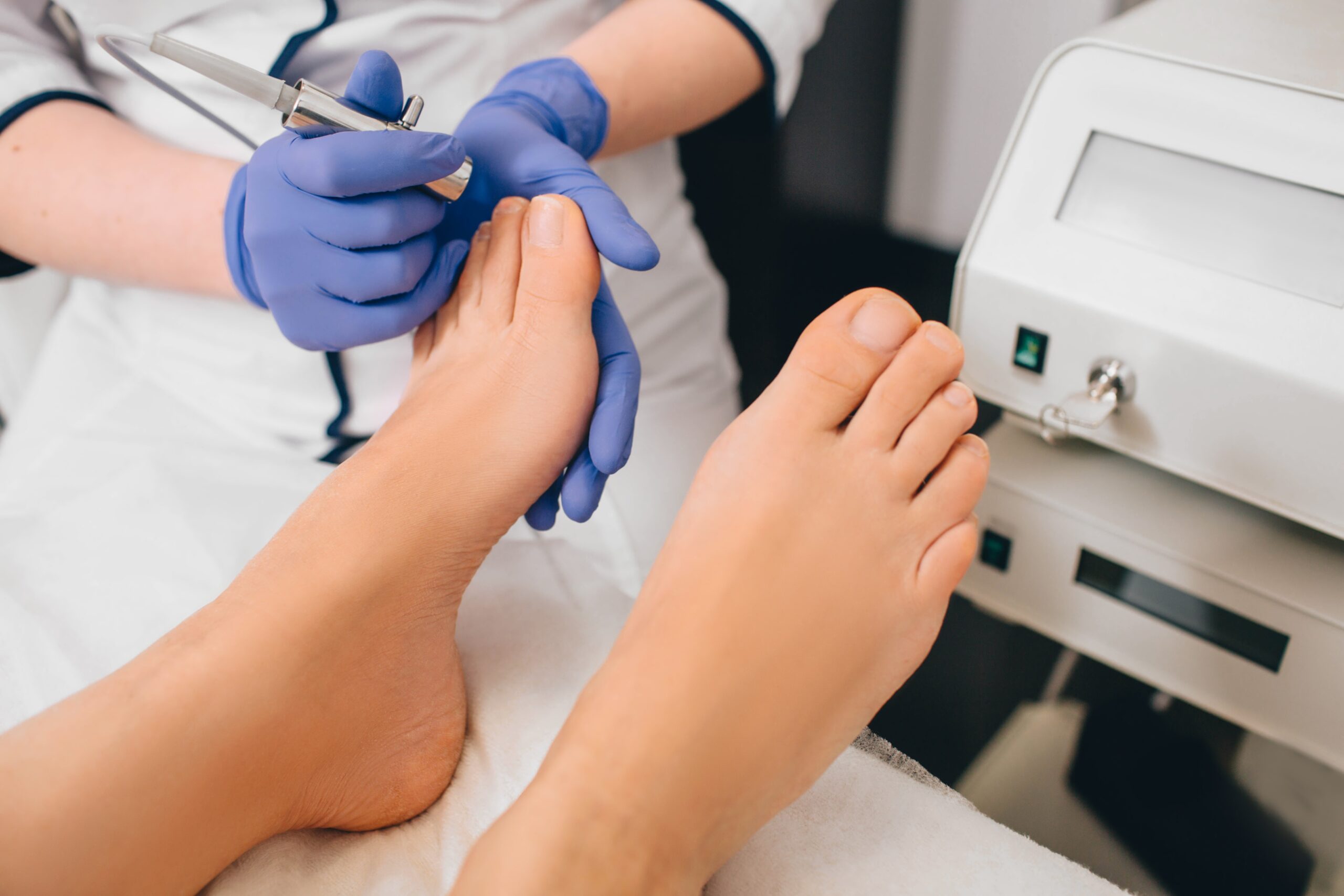Neuromas, commonly known as “pinched nerves” or nerve tumors, can be a source of persistent foot pain and discomfort, particularly between the third and fourth toes. This benign growth of nerve tissue often plagues women, and its symptoms include pain, burning sensations, tingling, and numbness in the affected area. In this comprehensive blog post, we will delve into the causes, symptoms, home treatments, and professional interventions for neuromas, shedding light on this often-overlooked foot condition.
Causes of Neuromas
While the exact cause of neuromas remains unclear, several contributing factors have been identified:
- Biomechanical Deformities: High-arched or flat feet can lead to instability around toe joints, fostering the development of neuromas.
- Trauma: Damage to the nerve from injuries can result in inflammation or swelling, contributing to neuroma formation.
- Improper Footwear: Shoes that squeeze the toes together, especially high-heeled shoes exceeding two inches, increase pressure on the forefoot and can be a significant factor.
- Repeated Stress: Occupations involving repetitive stress on the feet may contribute to the creation or exacerbation of neuromas.
Symptoms of Neuromas
Recognizing the symptoms of neuromas is crucial for early intervention. Common indicators include:
- Forefoot and Toe Pain: Persistent pain between the toes, often described as similar to having a stone in the shoe.
- Tingling and Numbness: Sensations of tingling and numbness in the ball of the foot.
- Swelling: Swelling between the affected toes.
- Pain When Weight is Applied: Discomfort in the ball of the foot when weight is placed on it.
Home Treatment for Neuromas
If you’re experiencing neuroma-related pain, several home remedies may offer relief:
- Appropriate Footwear: Choose shoes with roomy toe space, low heels, and adjustable laces or buckles for width modification.
- Shock-Absorbent Soles: Opt for shoes with thick, shock-absorbent soles to alleviate pressure on the foot.
- Rest and Massage: Rest your foot and massage the affected area to temporarily alleviate pain. Using an ice pack can also help dull the pain and improve comfort. Several of our pedicures at MedFootSpa.com include a professional foot massage. 

When to Seek Professional Help
It’s crucial to consult with Dr. Bishop DPM, FACFAS or Dr. Rappette DPM, FACFAS at the first sign of pain or discomfort. Early diagnosis and intervention can prevent the condition from worsening. If left untreated, neuromas tend to progress, necessitating more invasive treatments. Call (630)553-9300 or (815) 942-9050 to schedule an appointment with Foot & Ankle Centers today. We have locations in both Yorkville & Morris, IL.
Diagnosis and Treatment Options
Podiatric care is essential for proper diagnosis and tailored treatment plans. Treatment options vary based on the severity of the neuroma:
- Padding and Taping: Special padding at the ball of the foot can alter abnormal foot function, relieving symptoms caused by the neuroma.
- Medication: Anti-inflammatory drugs and cortisone injections may be prescribed to ease acute pain and inflammation.
- Orthotics: Custom shoe inserts can help control foot function, reducing symptoms and preventing the condition from worsening.
- Surgical Options: In cases where conservative treatments fail, podiatric surgery may be necessary to remove the inflamed and enlarged nerve. This outpatient procedure often has a relatively short recovery time.

Preventing Neuromas
While the exact causes of neuromas are not fully understood, taking preventive measures can reduce the risk:
- Proper Footwear: Ensure exercise shoes provide enough room for your toes and avoid compression.
- Padding: Choose shoes with adequate padding in the ball of the foot.
- Avoid Prolonged Use of Improper Shoes: Minimize time spent in shoes with a narrow toe box or excessive heel height.









